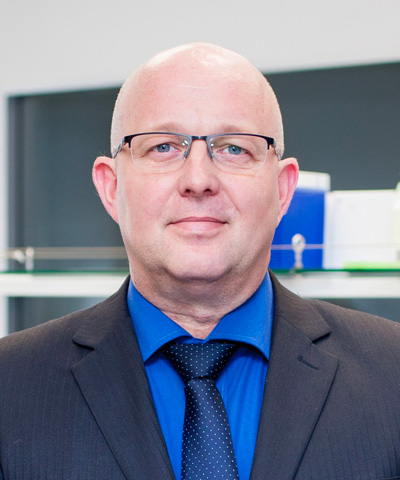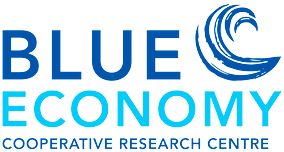
Webinar: Flow interactions with seaweed and implications for offshore aquaculture
Wednesday 26th April, 2023
4pm – 5:30pm AEST
This webinar will provide a background to offshore seaweed aquaculture including an Australian perspective, the biophysical effects arising from interaction with waves and currents and an overview of current projects in offshore seaweed aquaculture.
We’ll touch on the opportunities for cultivating macroalgae in the open ocean, required adaptation to high energy environments along with the required system design and supporting technologies. Lastly we will cover the seaweed-ocean interaction processes and the current research gaps in seaweed hydrodynamics.
A Q&A will follow the presentations.
Presentations:
1. An introduction to offshore seaweed aquaculture including an Australian perspective, scoping study findings relevant to the ocean environment/hydrodynamics.
Presented by Dr Wouter Visch, Institute for Marine and Antarctic Studies, University of Tasmania
2. Biophysical effects arising from interaction with waves and currents.
Presented by Dr Louise Kregting
3. An overview of current projects in offshore seaweed aquaculture.
Presented by Professor Bela Buck
4. Seaweed-ocean interaction processes, research gaps in seaweed hydrodynamics.
Presented by Professor Ryan Lowe
PRESENTERS

Name: Dr Wouter Visch
Affiliation: Lecturer, Seaweed Aquaculture IMAS, University of Tasmania
Dr. Wouter Visch is a Researcher and Lecturer at the Institute for Marine and Antarctic Studies. His research is focused on seaweed aquaculture, primarily the large brown kelps. Wouter combines both field and lab experiments, and applies fundamental research findings from seaweed ecology, evolution, and physiology to develop a sustainable seaweed aquaculture industry.

Name: Dr Louise Kregting
Affiliation: Senior Scientist, Plant & Food Research New Zealand
My research interests lie in how organisms operate and interact in the marine environment. During my career I have investigated the influence of physical processes (temperature, light, nutrients and water motion) on the biology and ecology of invertebrates (black coral communities, serpulid reefs and sea urchins) and macroalgae (browns and reds). I am an experienced scientific diver and have a range of skills from both the marine biology and hydrodynamic disciplines: use of autoanalysers for determination of nutrient concentrations in seawater and macroalgal soluble pools; use of flumes, both unidirectional and oscillatory; field measurement of water velocity using Acoustic Doppler Current Profilers and Acoustic Doppler Velocimeters in both the laboratory and field. More recently I have expanded my area of expertise to develop coupled hydrodynamic ecological models using MIKE 21.

Name: Prof Bela Buck
Affiliation: Head of Working Group, Alfred Wegener Institute Helmholtz Centre for Polar and Marine Research
Prof. Dr. Bela H. Buck is involved in projects regarding offshore aquaculture (especially as multi-use of offshore wind farms) at the Alfred Wegener Institute (AWI) in Bremerhaven/Germany. He is a member of the steering committee of the German Agricultural Research Alliance (DAFA) as well as the Founding Chair of the ICES (International Council for the Exploration of the Sea – Copenhagen/Denmark) Working Group of Open Ocean Aquaculture (WGOAA). Today, Bela H. Buck is involved in various projects concerning the cultivation of marine plants/animals, the development of technological design and the realisation of pilot projects to commercial enterprises. He is in cooperation with various national/international institutions.

Name: Prof Ryan Lowe
Affiliation: Professor, Oceans Graduate School, University of Western Australia
Prof Ryan Lowe joined UWA in 2007, after completing a PhD in Civil and Environmental Engineering in 2005 from Stanford University and following a postdoctoral research and lecturing position at Stanford. Between 2012-2016, I received an ARC Future Fellowship that focused on improving predictions of nearshore processes that govern coastal hazards worldwide, using Western Australia’s extensive coastline as a case study to investigate the coastal dynamics of diverse wave- and tide-dominated coastal systems. From 2014-2020 I served as Editor for the Journal of Geophysical Research – Oceans. My research has been well-supported by a number of sources, including from the ARC, State Government, international funding agencies and through collaborative projects with a wide range of industry partners.
FACILITATOR

Name: Prof Lindsey White
Affiliation: Deputy Program Leader – Seafood & Marine Products/Professor
Blue Economy CRC/Auckland University of Technology
Professor Lindsey White completed his PhD at the University of Auckland in 2001. He was awarded a three-year Post-Doctoral Fellowship from the New Zealand Foundation for Research, Science and Technology and in 2004 took up a position as Senior Lecturer in the School of Applied Science at Auckland University of Technology (AUT). He was appointed Head of the School of Interprofessional Health Studies at AUT in 2010 and in 2014 gave this up to take up a position as Associate Dean – International and Enterprise in the Faculty of Health and Environmental Sciences. In 2016 he took up the role of Associate Dean – Research and Enterprise. Professor Lindsey White is currently on the Science Executive of the Blue Economy CRC and Deputy Lead of the Seafood and Marine Products Research Program. Professor White continues to teach, supervise and research within the School of Science at AUT.


